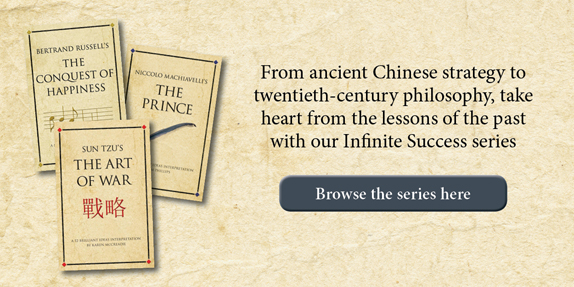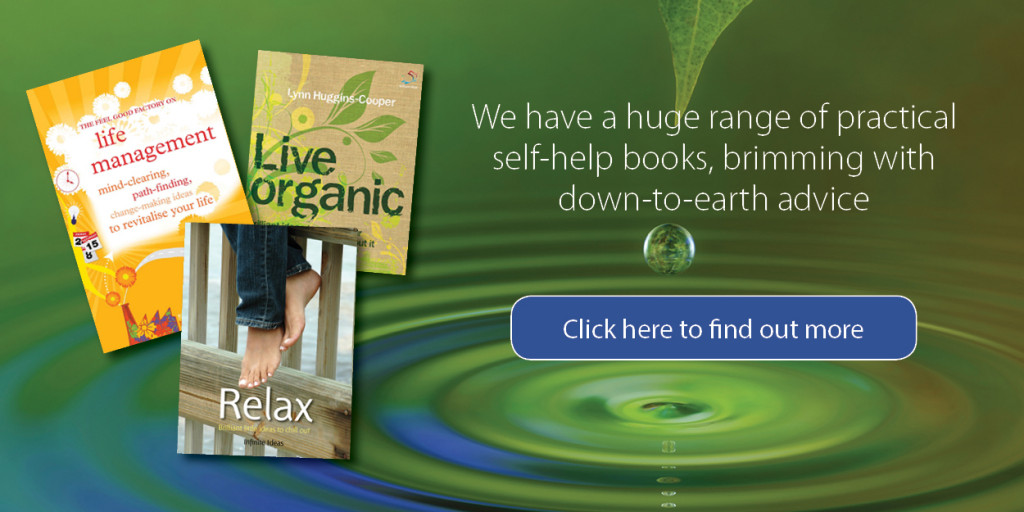Current events
Cometh the hour, cometh the Boris
6 August 2014 by Catherine Holdsworth in Business and finance, Current events
Boris Johnson has just declared his intention to run for MP in the national election next year. While Londoners may breathe a sigh of relief that they will be losing their buffoonish Mayor, we can all close our eyes and hope, hope, hope that he doesn’t get voted in by the general public who, we presume, have more common sense than their wannabe future parliamentary representative. First comes MP, next step Prime Minister and the south of the UK will most likely be waging war against the north. Scotland: get out while you can!
Machiavelli has suggested that leaders are a product of their time, elected because the public need them to perform a certain role. Though it is hard to imagine any situation when we will need ol’ Boris to lead us, his reign may serve only to make us appreciate David Cameron all the more or fall for the un-PRable charms of Ed Milliband.
Tim Phillips’ book, The Prince discusses the right time to lead and the right time to stand back. If Boris really wants to hit the political heights perhaps he should study the lesson below.
If you achieve success, you’d like to think that you would have succeeded in any job in any company. Not true, Machiavelli points out. Leaders are usually successful because they’re right for the moment. ‘Rulers maintain themselves better if they owe little to luck,’ says Machiavelli, describing how a prince can maintain a kingdom he has won through arms and ability. But he’s defining luck closely. What he doesn’t consider to be luck is the combination of the right time and the drive to succeed that throws forward a ruler. Indeed, he considers the spark of frustration – which becomes inner drive – to be an important element when the opportunity arises.
So we have three things: potential, the right time in which to exercise that potential, and an inner force to succeed. It’s like this:
Talent + opportunity + drive = success
We often assume that talent alone is sufficient to make someone a success, or to make a tenure as a leader successful. Machiavelli says that you actually need to be the right sort of leader for the specific opportunity. History is written by winners, and so it is often written as a simple meritocracy – the right person just somehow floats to the top effortlessly and inevitably. But in any generation there are nearly-successes: those people who would have been successful at a different time, or with different challenges, or if they had just a little more of the right type of drive to meet those challenges.
The best example of the combination of talent, drive and timing in political history is probably Winston Churchill, a man who in any other time would have been remembered as a comparative failure. By the mid-1930s, Churchill’s best years were assumed to be behind him, and compared to the reach of his ambition they weren’t even that good. He was also considered to be a political opportunist and, in addition, his political views were well out of step with fashionable thinking. But when his country needed decisive leadership and a uniting force who was above party politics, he became prime minister in 1940 – at the age of sixty-five – and led Britain brilliantly in World War II.
Most political careers end in failure: bright stars who never seem to have quite the right opportunity; party loyalists whose party can’t get elected into government; talented meteors who make one gaffe that they never manage to shake off; number twos who don’t make it to the top job until it’s too late, or who don’t get there at all.
In politics, this is acted out nightly on the News. But we all know someone who didn’t quite make it, got stuck in the wrong job, or just lost their drive. You want to succeed? You need to find the right opportunity, not wait for it to come to you.
The War Centenary: 100 years since The Old Lie
4 August 2014 by Catherine Holdsworth in Current events
Dulce et decorum est … remember the war.Today is the centenary of the declaration of war on Germany by Britain and her allies. An event marking the centenary of the German invasion of Belgium is being attended by world leaders in Liege. While in our office, Richard’s still trying to remember what he did in the Great War, there are probably many of you out there wondering about your family’s contribution and involvement.
Our book, Discover your roots offers helpful tips on how to find out about your family history. The idea of trawling through the National Archive sounds quite exciting to us!
More has been written about the First World War than probably any other historical
event. There are thousands of books covering every imaginable aspect of the conflict: you are certain to find several, if not a surfeit, of books covering any specific area of interest you may have. If you know little about the ‘Great War’ – its causes, course and aftermath – then initially the children’s section of your local library or bookshop is a good starting point because the information is generally far clearer, objective and compact. Or look at the excellent websites designed for schools.
The Imperial War Museum in London is a rich source for information on many aspects of the First World War. Although known principally as a ‘museum’, there are several departments holding a variety of information: personal documents, including unpublished diaries, poems, letters and memoirs; over six million photographs, including unit photographs, ships, hospitals and many individuals (although usually of senior personnel); film, video, and sound recording; and the collection of drawings and paintings commissioned under the official war artists scheme. Regimental museums and other specialist military repositories may also hold similar material to the Imperial War Museum, but related to their particular area of interest.
It is The National Archives (TNA) that holds nearly all the official records relating to the war itself, and those who fought in it. The three most important series of records are the Campaign Medal Rolls, the Official War Diaries and personnel Service Papers. These last are held at TNA only for those who left or were discharged in the years following the war: those who stayed on as career soldiers, sailors or airmen are still held by the Ministry of Defence. Service records for army officers and ordinary soldiers have had very different histories since the end of the war. Those relating to officers who left the service before March 1922 have fared very well and, with only a few exceptions, all the papers survive. Unfortunately, for the enlisted men, the situation is quite different, as the majority of papers were destroyed or badly damaged by enemy action in 1940. In recent years, there has been a great deal of reconstruction work undertaken and now about 40% of papers for ordinary soldiers whose service ended before 1921 are available for research at TNA. These are in two series generally known as the ‘burnt’ and ‘unburnt’.
Royal Navy officers (to 1920) and ordinary seamen (to 1928) also have a virtually completes series of service records. The Royal Air Force was founded on 1 April 1918, before which records of airmen will be found in either army (Royal Flying Corps) or naval records (Royal Naval Air Service). All those officers and airmen whose service included a period in the RAF (to 1920) have records held at TNA.
Campaign or war medals were awarded to members of the armed services for taking part in a campaign or for service in time of war. For the First World War, all servicemen of all services, some women, and some civilians, were eligible for one or more campaign medals if they served abroad. In addition to campaign medals, many other servicemen and women were awarded medals for gallantry or were mentioned in despatches. Again, all the records are held by TNA.
 The War Diaries date from 1914 to 1922 and therefore cover the hostilities, and also the post-war armies of occupation. Some diaries record little more than daily losses, map references, etc.: others are much more descriptive. It is unusual for diaries to mention the names of ordinary soldiers, but you can sometimes find details in the diaries about awards of the Military Medal and the Meritorious Service Medal.
The War Diaries date from 1914 to 1922 and therefore cover the hostilities, and also the post-war armies of occupation. Some diaries record little more than daily losses, map references, etc.: others are much more descriptive. It is unusual for diaries to mention the names of ordinary soldiers, but you can sometimes find details in the diaries about awards of the Military Medal and the Meritorious Service Medal.
Discovering what somebody actually did, if they were in one of the Services, during the Great War (1914–1918) can be remarkably difficult. Service records, where they survive, give relatively little detail. Published and manuscript histories and diaries rarely give names, especially of those who were not officers. What is left is general information from which specific inferences have to be drawn.
Anger Management for Orlando Bloom
30 July 2014 by Catherine Holdsworth in Current events, Entertainment, The Diversity Dashboard
As per usual, we in the Infinite Ideas office are entertained by the latest celebrity scandals. Today we were amused to read about Orlando Bloom throwing a punch at tween icon, Justin Bieber. While we empathise with Bloom, who seemed infuriated at the concept of young Bieber romancing his ex-wife, we do not advocate violence* and so we have decided to prescribe Mr Bloom some good old-fashioned anger management.
The brilliant book of calm offers excellent tips on how to beat those angry urges:
Anger in and of itself is not bad. If it was then you’d never have had the civil rights movement, women would never have got the vote, we would not have been able to remove corrupt leaders from our governments; quite a few good things have resulted from a well-placed sense of righteous anger. What’s bad is when you hurt someone else – either emotionally or physically – because you’re unable to express your anger appropriately.
Also, when you feel angry about something, consider fi rst if there is anything constructive you can do about it. Write to your MP? Write a letter of complaint? Ask to see a manager? Go to marriage or career counselling? Once you’ve exhausted the constructive ‘dealing with the problem’ options, look at dealing with the emotion. Physical exercise tends to drain away anger like nothing else. So perhaps you could go for a swim or a walk? Above all, don’t take your anger out on your friends and family. They are your support network and you should be kind to them. You know it makes sense.
Apart from anger management courses, you can remove yourself from the situation and go for a short walk to calm down. Or consider taking up an energetic sport like boxing or martial arts to channel your aggression safely. If you start to feel out of control, speak to your GP, who can also check for hormonal imbalance and advise on counselling services.
*In this case, we are in Bloom’s corner; Bieber had it coming!
Dear Usain Bolt …
30 July 2014 by Catherine Holdsworth in Business and finance, Current events, Entertainment, The Diversity Dashboard
It has emerged that Usain Bolt, Olympic 100m champion, has been quoted as saying that the 2014 Commonwealth Games in Glasgow were, ‘a bit shit’. No doubt Glaswegians are used to such language, but coming from a globally renowned athlete, this hits below the belt. We can sympathise with Bolt, who being from Jamaica, perhaps isn’t used to the traditional Scottish weather that has been especially atmospheric and representative of the Games’ host city.
Nevertheless, with over 70 nations competing this year, it would seem that Bolt’s cultural compass is a little off course. Luckily, our book, Diversity dashboard by Dr Deborah Swallow and Eilidh Milnes, offers excellent advice that we hope Bolt will take on board in time for Brazil 2016!
Ten strategies for clear, cross-cultural communication:
- Speak slowly and clearly
- Ask for clarification or summarize your understanding of what has been said
- Frequently check for others’ understanding
- Avoid idioms, metaphors and other colloquialisms
- Cut out jargon
- Clearly define your business concepts – e.g. what does ‘as soon as possible’ (or ‘a bit shit’) mean?
- Be specific
- Choose your medium of communication effectively
- Provide information via multiple channels
- Be patient
Getting into the spirit of the Commonwealth Games
25 July 2014 by Catherine Holdsworth in Current events, Lifestyle
Last night the Commonwealth Games officially opened in Glasgow so it’s time for us all to revive the enthusiasm that we had two years ago for the London Olympics. Team GB may now be divided, but surely that gives us infinitely more reasons to cheer?
If, like us at Infinite Ideas, you’re struggling to think of which sport you should be training for, take this simple test. Rebecca has signed up for Judo, Catherine is dusting off her hockey stick, and Richard thinks he’d be good at netball (though the general consensus is that he should join a lawn bowls team).
If, however, you are stuck in the office during the Games and taking up judo is a distant dream, Corporate Wellness expert Kate Cook offers advice on how to keep fit even when at your desk:
Pilates is a great way of avoiding injury and you don’t have to be a dancer to benefit – the average desk jockey risks quite enough damage at work, and a few simple moves can ease the pain of the working day.
Pilates first found fame as a way for injured dancers to recover their strength and mobility. With its emphasis on building up tone with low stress and few repetitions it proved a great way of recovering dynamically – essential for those aiming to get back to full fitness as fast as possible.
These days the walking wounded that turn to it are just as likely to be office workers with back pain and stiff necks. Ironically many of them will perform their Pilates moves with great care and attention in the studio, then go back to doing exactly what caused the problem once they’re back in the familiar surroundings of the office. While the studio is undoubtedly the place to learn new moves, you can practice them just about anywhere on the planet, and Pilates in the office is a great way of preventing those problems from showing up in the first place. Take it from me. I found out the hard way. A professional life slaving over a hot keyboard left me with chronic back pain, stiff hands and an amusingly lop-sided neck from clutching a phone under my chin. These days I make sure I get away from the keyboard often enough to give my body a break, but when deadlines are tight, or the boss is hanging over your shoulder, you don’t have to leave your seat to perform simple exercises to release those muscles, help your posture and above all ease the stress.
Since we tend to store up stress in the shoulders, try to roll it out again with shoulder rotations. Mobility exercises – taking the joints through their full range of movement – are a staple of most forms of modern exercising and Joseph H. was a great fan as can be seen from exercises like the one leg circle which was one of the first he taught in Return to Life through Contrology. Your shoulder, like your hip, is a ball and socket joint, meaning it can rotate in any direction, so every now and again you should let it. Sitting in neutral, with your feet flat on the floor and your shoulders relaxed but not slumped, bend your elbows and rest your fingertips on your shoulder (right on right, left on left). Now circle them forwards and upwards so your elbows touch, then lift up above your ears, pull back to be in line with your shoulders and finally come forward again. Now perform the same circle but in the opposite direction – remember the importance of working every equal and opposite muscle so that for every pull there is a push.
The best office destressing exercise is undoubtedly to land a clean right hook on the boss, but since this may lead to ugliness it’s worth looking at other options.
Stress balls – those squidgy balls you can squash in your fist when anxiety rises – are a good exercise for your hand muscles. The problem is people often tense the trapezius muscle that leads to the shoulders when they do. If you use a stress ball, then make sure you perform the shoulder roll above.
Now work on the fingers – if you’ve been typing, then they’re probably tense and tired. Despite the publicity about RSI you only have to look around any office for a couple of minutes and you’ll find keyboards without wrist wrests, keyboards set up at the wrong height for the seat and keyboards right at the edge of the desk so there’s nowhere to rest your elbows. Concentrated mouse work, even with elegantly shaped ergonomic mice, can also put real pressure on your fingers. Remember that before you start your fiftieth game of minesweeper.
To release tension in the fingers start by turning your hands palm upwards and bring the tip of each finger in turn to the tip of your thumb then repeat the sequence. Just to make things a little more interesting, try starting with the little finger on one hand at the same time as you start at the index finger on the other so the two hands are out of synch.
Next, hold all your fingers our flat together and then open up the gap between the second and third fingers so that the first and second pull away in one direction and the third and fourth in the other. Sci-fi fans will immediately recognise this as the Vulcan greeting. Now bring the second and third fingers together and keep them together and this time open up the gaps between the first and second, and third and fourth. Try not to do this if the self-appointed office wit is around, otherwise Spock/Mork and Mindy gags will follow you around forever.
Put your arm up in the air, bend your elbow and allow your hand to rest on the top of your head with your fingers on the side just touching your ear. Now gently ease into a stretch by pulling very lightly with the hand while resisting gently with the head and neck muscles as if you were trying to straighten your neck against the pull of your hand. Don’t overdo it: this is a gentle release of the muscles in the neck for just a few seconds. Now reverse arms and do the other side. Now roll your head back and circle. There, feel slightly less homicidal now?





